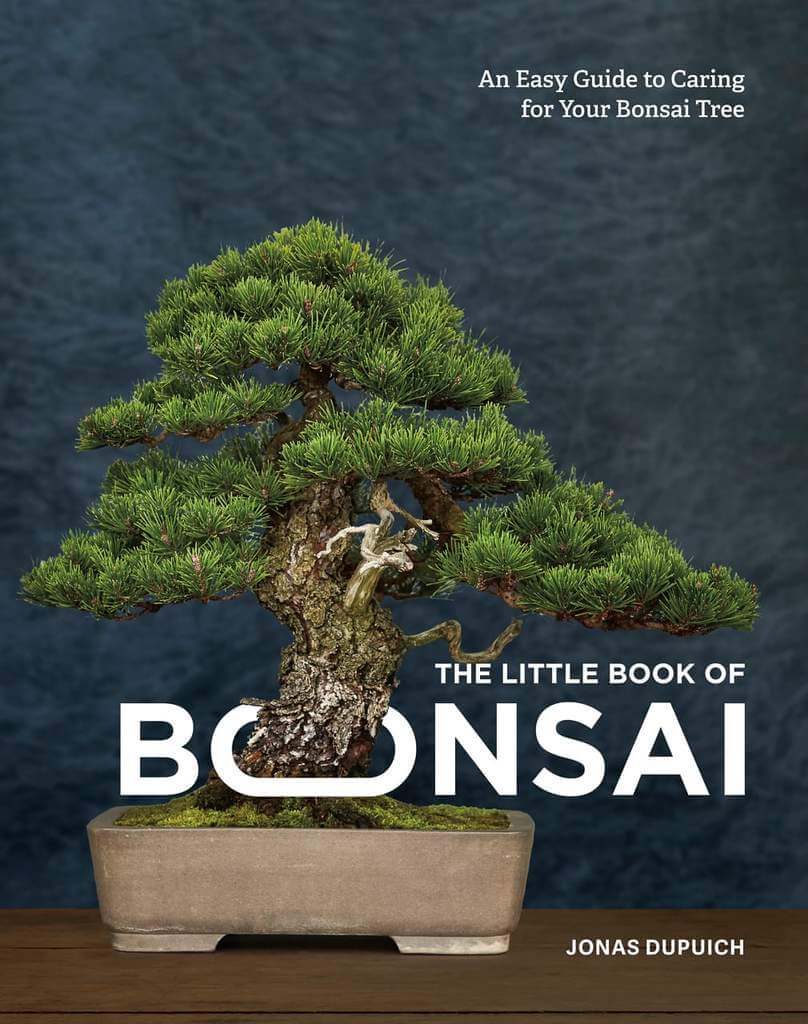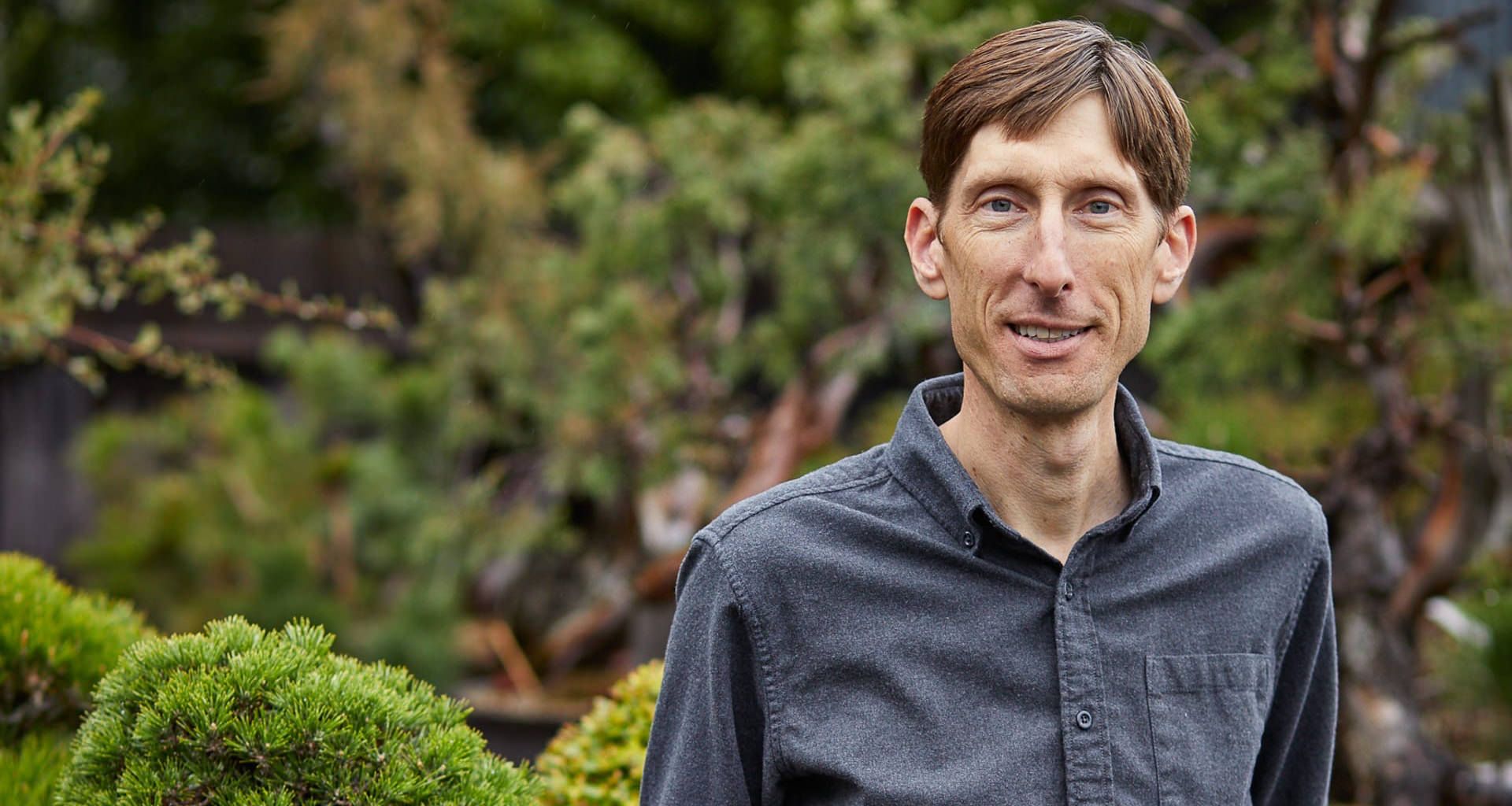Bonsai, the Japanese art of growing miniature trees, is said to be complex, with many things to consider and pitfalls to avoid. Luckily, there’s the bonsai expert Jonas Dupuich, who shares his knowledge on his blog and in his recently published book.
Please tell us something about you and your professional background.
I am a bonsai teacher and nurseryman. After twenty years of growing bonsai as a hobby, I started working with trees full-time five years ago. Previous careers include nursery work and eight years in academic publishing.
You're a recognized bonsai expert and owner of the #1 bonsai blog in the U.S. How did you discover your passion, and what made you turn it into your profession?
Right after college I was working for the family business, a retail nursery, where I met a man who became a well-known bonsai teacher. We became great friends and I continued to learn from him for the next twenty years.
The gateway for making bonsai a career was my blog, Bonsai Tonight. I had no idea when I started writing about bonsai that it would become such a big part of my life, but it helped me develop an audience long before I thought about making it a career.
The exercise of producing blog articles gives shape to my week.
Which role does writing play in your life?
Writing has been a life-long love of mine. I currently write two articles per week for my blog. Most posts are how-to articles or reports from exhibits around the world, but the exercise of producing them gives shape to my week. To date, I’ve written over 1,000 posts.
I also write articles for various bonsai publications and chip away at longer works as I find time for it.
You've recently published The Little Book of Bonsai with Ten Speed Press. Please tell us more about it.
I wrote The Little Book of Bonsai to help absolute beginners keep their trees healthy and to inspire them to learn more. The book guides readers through basic development techniques like pruning, wiring, and repotting with text and photos that show how to get started.

It's your first book. How difficult was it to write it?
Not surprisingly, it was a lot harder than I expected.
Finding time to focus on the book meant waking up at 5:30 and writing for a couple of hours before starting my normal workday. It was also tricky to provide simple advice to hobbyists who grow different species in different climates. Huge thanks go to my editor, Lisa Regul at Ten Speed Press, for helping me maintain clarity and focus from the first chapter through the last.
Writing the book was a lot harder than I expected.
Also, was it easy to find a publisher? Or did the publisher actually find you?
I was fortunate that the publisher contacted me about the project. The timing was great as I’d recently started work on a book for bonsai beginners.
Could you explain how you made use of Ulysses while writing the book? Which of its features helped you the most?
I wrote all notes and 100% of the first draft in Markdown with Ulysses. I have strong feelings about writing apps and have been a huge fan of the platform since I began using it several years ago.
The most helpful feature is the ability to create different “files” and search across all of them with a few keystrokes. I find using the mouse slow, and I don’t have to leave the keyboard very often when I’m in Ulysses.
How did you find out about Ulysses?
Every few years, I survey available editors and test them out. I’ve used more than I can count since I started working with PaperClip for my Atari 800XL back in the ’80s.
When I started taking notes for the book, I wanted a clean and friendly environment to work in. Once I started using Ulysses, there were no other choices.
I wanted a clean and friendly environment to work in. Once I started using Ulysses, there were no other choices.
What do you like best about Ulysses? Do you have a favorite feature?
My favorite feature is the ability to search across all of my work with ⌘O (command-O). Why can’t computers work that way for all of my files?
I can also say that it simply feels good to work in Ulysses. There are no distractions, I can sync text across all of my devices, and it’s comforting to know I have a place for everything I want to keep track of.
Which other tools and productivity apps are you using, and how do they help you?
As most of my writing involves photography, I lean heavily on Adobe Lightroom. In a typical year I publish 600-700 photos.
What else is essential to keep you productive? As an example, do you work in a particular environment or follow a timely routine?
My productivity is directly linked to how early I wake up. If I’m at my desk an hour or two before the sun comes up, I’ll be happy for the rest of the day knowing I got some good writing in.
For a regular dosis of sweet little trees, you can also follow Jonas on Instagram.
